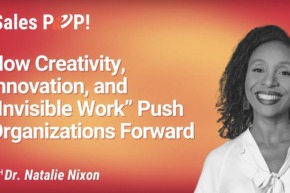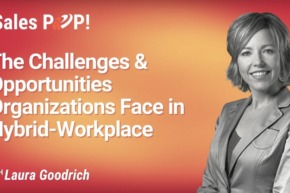In a talk with John Golden, sales expert Geoffrey M. Reid talked about something important—why schools should teach real sales skills. Reid wrote a book called The Revenue Catalyst: Mastering the Art of Sales. In this talk, he explains why sales should be taught like other school subjects, such as math or marketing.
Schools Teach Marketing—Not Sales
John Golden started the talk by saying many schools teach marketing, but not sales. This is a big problem. Many students get marketing degrees and then end up in sales jobs. But they don’t know how to sell. They never learned how. This shows why schools need to start teaching sales.
People Don’t Understand Sales
Reid says most students don’t know what sales really is. Many think it’s just pushing people to buy things. That’s not true. Sales is about solving problems and helping others. But students don’t hear this in school. This creates a lot of wrong ideas about sales.
Teachers Don’t Want to Teach Sales
Reid shared a story. A school leader once told him that teachers don’t feel ready to teach sales. Why? Because they never worked in sales themselves. This means schools don’t have the right people to teach it. This keeps the subject out of the classroom.
We Need Real Salespeople in Schools
Reid says schools should hire sales experts to teach students. People who have worked in sales can share real-world lessons. This helps students learn skills that work in real jobs.
How to Teach Sales the Right Way
Reid’s book shows how to teach sales step by step. He says we need to teach two kinds of sales:
- B2B (Business to Business): This is when one company sells to another.
- B2C (Business to Customer): This is when a business sells to regular people.
Each type is different and needs different skills.
Why Product Positioning Matters
One big idea in Reid’s book is product positioning. This means knowing where your product stands in the market. Is it strong like Apple’s products? Or does it need more work to sell? If a product is strong, it’s easier to sell. If not, salespeople need better plans and tools.
Building a Sales Strategy
After figuring out product positioning, Reid says the next step is to build a sales strategy. This is a plan for how to sell the product. Some products need simple sales. Others need big teams and long talks with customers. It depends on the product and the people buying it.
Sales Jobs Are Not All the Same
Many people think all sales jobs are alike. That’s not true. Some salespeople give advice, some work with teams, and some handle big deals. Sales jobs are full of variety, and students should learn about these different paths.
Sales Can Be Complicated
Selling can be hard. You may talk to many people in one company before they say yes. Salespeople need to understand how decisions are made and use facts to guide their next steps.
What About AI in Sales?
Golden asked about AI (Artificial Intelligence) and sales. Reid says AI can help with boring tasks like sorting leads. This gives salespeople more time to focus on closing deals.
But AI can’t replace human skills like creativity or building trust. Salespeople still need to connect with others and think smartly.
We Also Need Better Sales Leaders
Reid says many people become sales leaders because they are good at selling. But being a leader is different. Leading a team takes new skills. Schools should teach these skills too.
He also says sales teams work best when each person has different strengths. Not every top seller will be a good team leader. That’s okay—teams need balance.
Final Thoughts: Let’s Take Sales Education Seriously
Reid’s message is clear. We need to teach sales in schools, just like we teach other business topics. Real sales classes can help students get ready for great careers. They can also help end the myths that sales is pushy or easy.
Quick Summary
- Sales classes are missing in schools.
- Marketing and sales are not the same.
- Many students don’t know what sales really is.
- Sales experts should teach in schools.
- Sales has many roles—students should learn them.
- AI helps, but human skills matter most.
- Sales leadership is its own skill and needs training.
If schools add real sales programs, they’ll help students succeed in the real world—and make sales a respected career.
Our Host
John is the Amazon bestselling author of Winning the Battle for Sales: Lessons on Closing Every Deal from the World’s Greatest Military Victories and Social Upheaval: How to Win at Social Selling. A globally acknowledged Sales & Marketing thought leader, speaker, and strategist, he has conducted over 1500 video interviews of thought leaders for Sales POP! online sales magazine & YouTube Channel and for audio podcast channels where Sales POP! is rated in the top 2% of most popular shows out of 3,320,580 podcasts globally, ranked by Listen Score. He is CSMO at Pipeliner CRM. In his spare time, John is an avid Martial Artist.







Comments